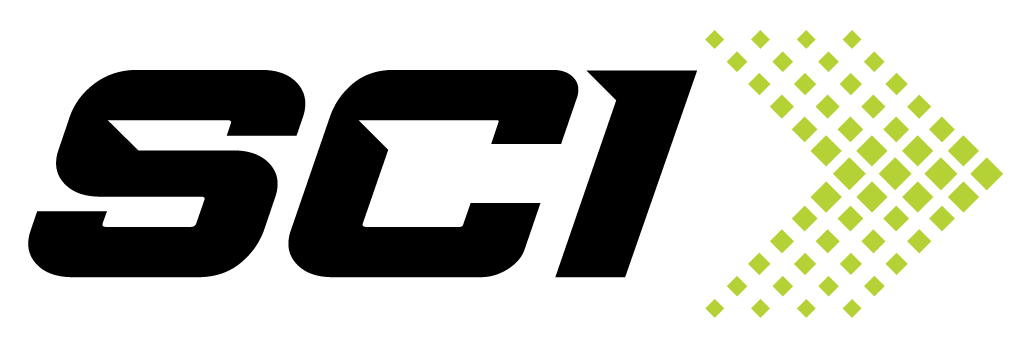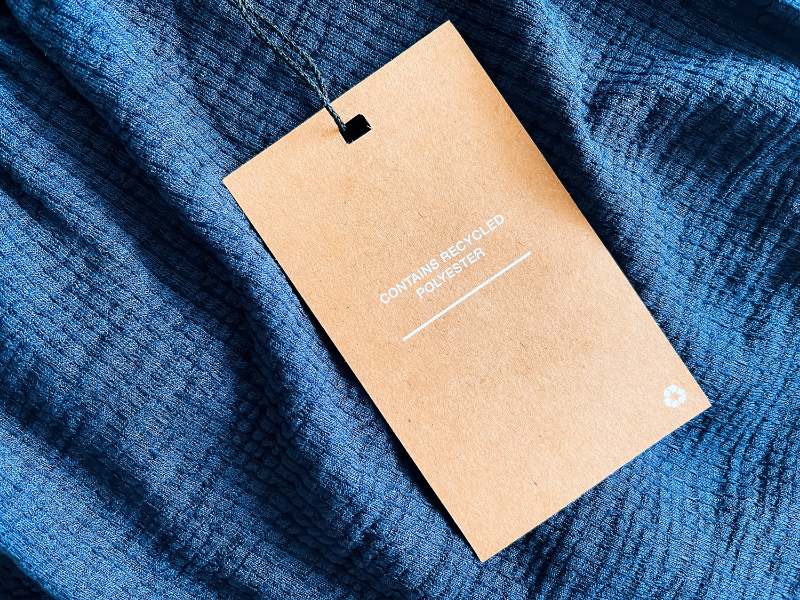What is Repreve Fabric? The 5-Minute Guide
Today's consumer is far more mindful of the fabrics they wear and if they meet sustainability standards. And while their closets may still be filled with non-renewable fibers and materials, 58% of consumers care about the sustainability of materials and processes used in making their clothes.
In other words, sustainable clothing might not fill their closets today, but as consumers purchase new clothes, the adoption of sustainable apparel made with environmentally friendly practices is on the rise.
And one renewable fabric that's increasingly making its way into people’s closets for good is Repreve. So, what is Repreve fabric?
Repreve is a 100% recycled polyester fiber manufactured by the brand Unifi. Repreve is a specialized recycled polyester, made from sustainably sourced post-consumer plastic water bottles. The fabric is used to make a wide range of garments, including swim trunks, activewear, outdoor gear, etc.
H&M, New Balance, Nike, Patagonia, and many other global fashion brands use Repreve. But it's not just the environmental benefits that have industry juggernauts lining up for Repreve; the fabric also has unique performance attributes. Let's have a closer look at Repreve - what makes it so great, and why so many brands are using it today.
But first things first, let's level set on how Repreve is made.
How Is Repreve Made?
Sustainable clothing is far greater than just the raw materials used to make a garment. Sure, those are important, but they are also table stakes. Components like dyeing, shipping, manufacturing waste, and other elements all contribute to the sustainability of a garment.
This section will give you a broad overview of how Repreve tackles the world of sustainability.
Who Makes Repreve?
Repreve is made by Unifi, a manufacturer of specialty synthetic yarns that's been creating textiles for over 50 years. Unifi originally began producing traditional polyester fibers for the apparel industry before inventing Repreve in 2007.
A Quick Aside About Polyester
You may know that polyester is the most widely used material in clothing, but did you know that nearly 60% of all garments for sale today contain polyester?
Polyester is a synthetic material and form of plastic made from non-renewable resources like petroleum. It's environmentally hazardous, from the waste it creates during production to its inability to degrade over time.
And since polyester is not biodegradable, once a consumer is finished with it, it most often ends up in landfills.
Sustainability of polyester aside, it's a remarkable material - noted for its incredible strength and durability. With the increased adoption of activewear clothing over the past few decades and certainly Covid-19, finding a fabric that can stretch and keep its shape, and handle constant washing without tears or pilling, has made polyester more popular than ever.
But since virgin polyester is so harmful to the environment, many brands have been looking for more sustainable alternatives, which is the origin story of Repreve, by Unifi.
Unifi Recognized The Need for Sustainable Polyester
Aware of the increasing demand for polyester and sustainable fashion, Unifi originally produced Repreve fiber using the company's own industrial waste - that's right, their own discarded single-use plastic water bottles.
Soon after, Unifi began sourcing consumer plastic water bottles to be used in the process, which had profound ecological benefits. Since then, the company has recycled over 34 billion plastic water bottles around the globe in its production of Repreve.
What is Repreve Made Out Of?
Repreve fiber is made out of recycled post-consumer polyethylene (PET) bottles - the pervasive plastic single-use water bottles. PET requires the use of fossil fuels to make but can be recycled even though the majority end up in landfills or the wild.
Since Repreve uses recycled products only, its fiber doesn't require the extraction of additional fossil fuels. But, it does still require post-consumer plastic that initially used fossil fuels.
Apparel brands and mills will purchase Repreve fiber to create their own garments out of the material directly, or craft a unique fabric by weaving additional fibers with Repreve fibers. This blend can then be used to create a wide variety of clothing items.
What Is the Process to Make Repreve?
Source recycled PET water bottles and other suitable waste from around the world.
Wash, clean, and process the raw PET - then melt it into plastic pellets.
Extrude plastic pellets into long continuous filaments.
Spin filament threads into yarn and dye as necessary.
This is certainly an abridged summary of the process, but Repreve in its simplest form is created in four steps.
One notable accomplishment is the amount of waste Repreve collects at its processing center in North Carolina, which receives over 130 million pounds of recycled material annually.
What Are the Benefits of Repreve?
Repreve's benefits can be categorized by sustainability and performance attributes. On the sustainable side, Repreve reduces landfill waste by turning single-use plastics into apparel. Functionally, Repreve is water-repellant, strong and resilient, stretchy, wrinkle-resistant, and lightweight.
Since Repreve's sustainability impact often overshadows its performance capabilities, let's first look at what this fabric is good at from a functional standpoint.
Performance Benefits of Repreve
Putting sustainability to the side for one moment, Repreve is also recognized for the technical benefits it adds to clothing. Similar to other polyester fabrics, Repreve fabric creates clothing with the following technical benefits:
Repreve fabric is water-repellent
Repreve fabric is strong and resilient
Repreve fabric is stretchy and flexible
Repreve fabric is wrinkle-resistant
Repreve fabric is long-lasting
Repreve fabric is lightweight
These are similar attributes of virgin polyester, which makes it a clear choice for athletic apparel. That is, athletic apparel and the activities endured require these functional attributes of clothing.
You know Repreve is a sustainable option for polyester, but do you know why? Here are the primary ways it compares to virgin polyester.
Sustainability Benefits of Repreve
The most innovative benefit of Repreve fiber is its sustainability compared to traditional virgin polyester fiber. Unlike virgin polyester which requires the usage of petroleum products, Repreve relies on inputs that are already in consumption.
Rather than contributing to further demand for oil products that harm the environment, Repreve recycles polyethylene bottles that were previously produced. In this sense, Repreve fiber uses far less energy and water than traditional polyester manufacturing processes - in fact, recycled polyester has 32% fewer emissions compared to virgin polyester.
Unifi even quantifies the ecological impact its manufacturing has had on the planet.
By recycling over 30 billion water bottles to make Repreve, Unifi has saved enough energy to power over 280,000 homes for a year, provide yearly drinking water for 3.5 billion people and eliminate the CO2 emissions from 1.8 billion barrels of oil.
Repreve’s recycled content and manufacturing processes are also certified by Scientific Certification Systems (SCS) a trusted third party in the environmental space.
What Are the Downsides of Repreve?
The downside that plagues Repreve, similar to all synthetic or man-made fibers, is that it is not biodegradable or recyclable. Unlike natural fibers like wool, hemp, or cotton that break down and are more easily recycled or upcycled, Repreve is still made from plastic.
Plastic products like Repreve will be sitting in landfills for up to 500 years before they fully biodegrade.
Additionally, petroleum-based products like Repreve can create microplastics that leach into the soil and oceans and harm both human and animal health.
Thankfully consumer demand and organizational pressures are creating higher environmental standards for the textile and apparel industries.
Repreve may suffer from some unavoidable environmental costs but is far more sustainable than creating virgin synthetic fabrics. And at the end of the day, this organization is reducing the production of virgin polyester while also reusing existing waste, which are both positives.
Alternatives to Repreve
While Repreve is the leading provider of recycled polyester, other materials are similarly focused on the sustainability of textile manufacturing.
Numerous brands and organizations are pioneering the creation of bioplastics - plastic fibers made from plant sources such as seaweed or sugarcane. Unlike recycled polyester which requires oil-based inputs at a post-consumer stage, bioplastics are renewable alternatives derived from natural sources.
Another benefit of bioplastics is their biodegradability relative to polyester fibers, which by comparison take hundreds of years to degrade.
More investment and technology are needed to make bioplastics an abundant and affordable option for clothing manufacturers. But with the continued increase in consumer demand for sustainable apparel solutions, innovation research and development will continue to grow in tandem.
Many People Already Own Repreve, But May Not Know It
Repreve fabric is used by many of the largest and most recognized clothing brands in the apparel industry. Most consumers might be surprised to find out that some of their favorite brands are leveraging this sustainable fiber in their latest clothing lines.
Take a look at just a short list of the leading brands that rely on Unifi and their innovative Repreve product:
Nike
Volcom
Guess
Lands End
Patagonia
Speedo
Repreve Is A Major Player In the Growth of Sustainable Apparel
As you can see, there are several brands - both small and large - that are already using Repreve fabric in their clothing lines. This is because Repreve is an incredibly sustainable option that helps reduce the environmental impact of textile manufacturing.
Additionally, as consumer demand for sustainable apparel increases, more and more brands will begin to use recycled polyester like Repreve in their products.
As you source any sort of activewear or athletic apparel that relies heavily on polyester, explore your options for recycled polyester or at least other recycled clothing options.
Your customers are craving more sustainable apparel than ever, and your organization will be doing some good for the environment in the process.

